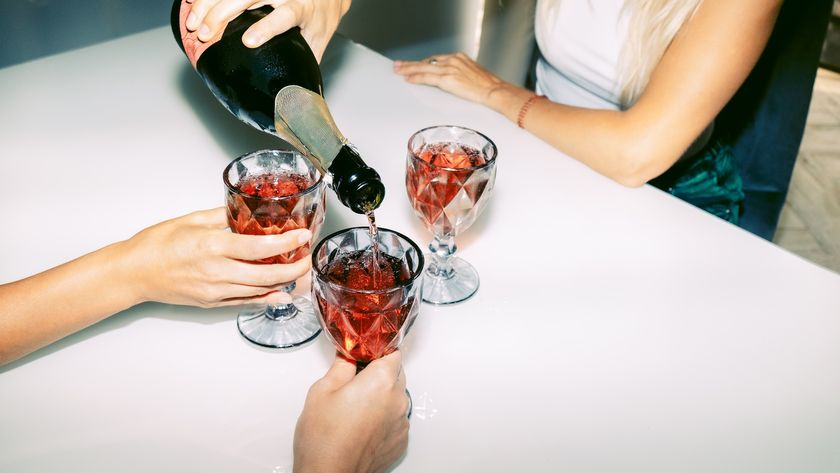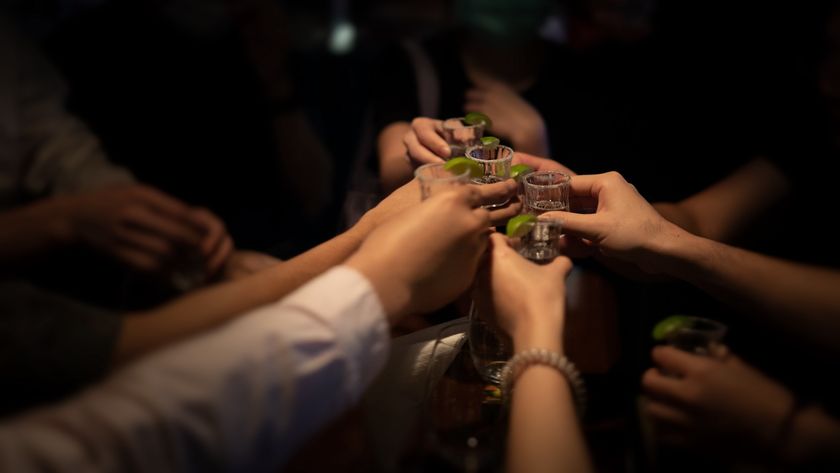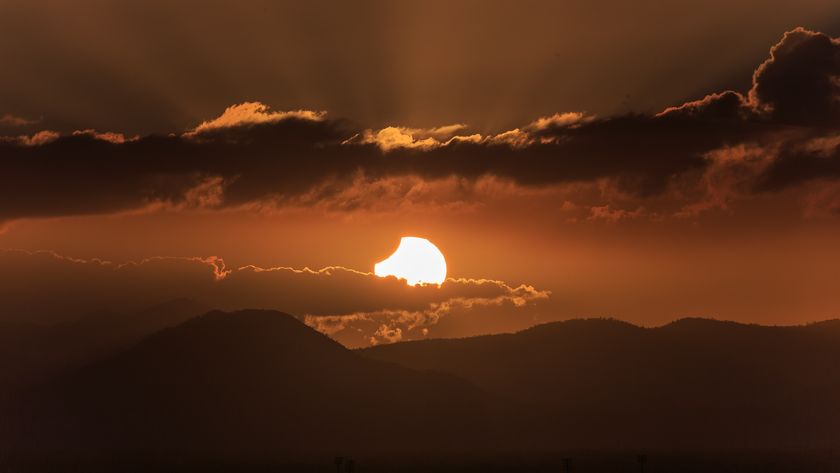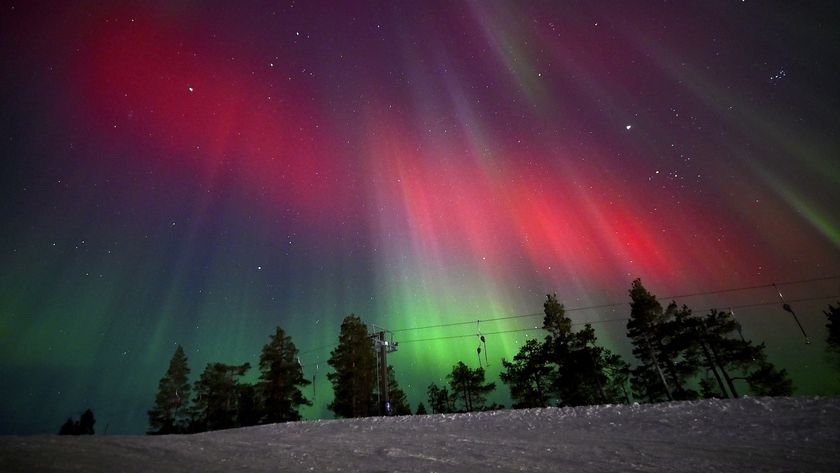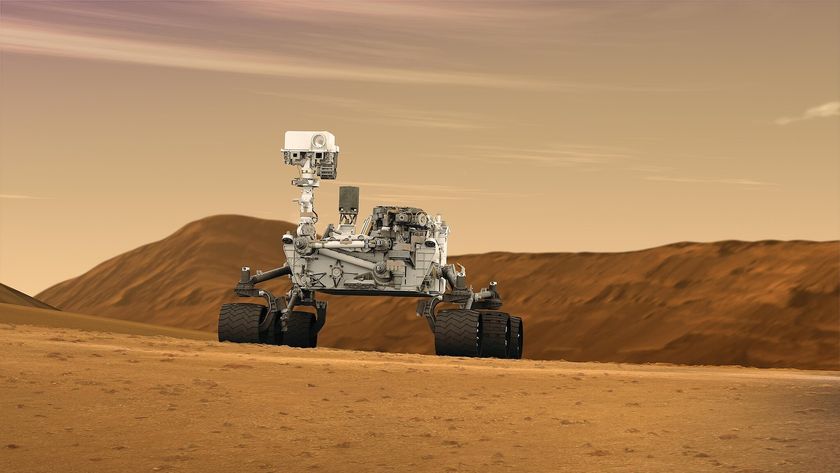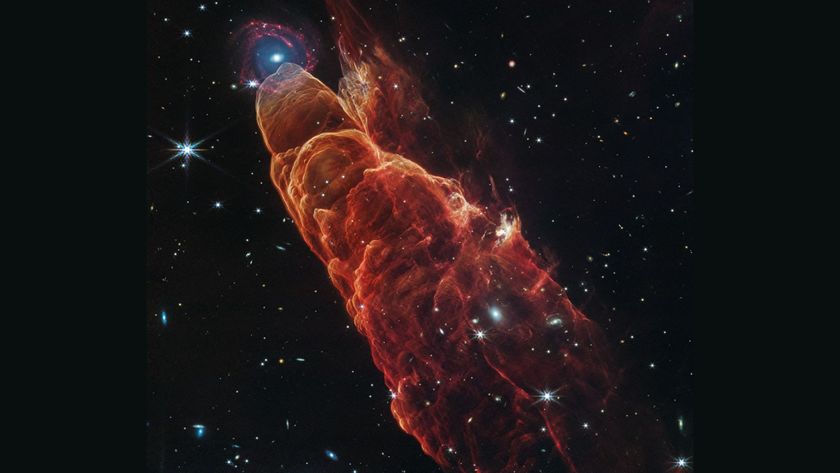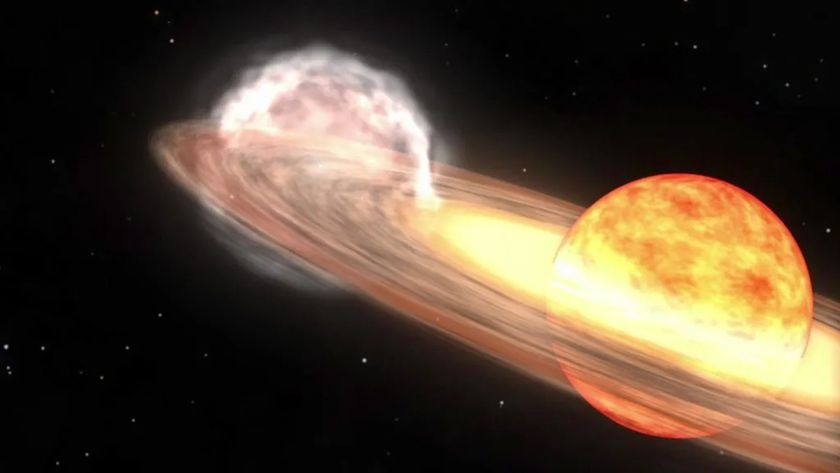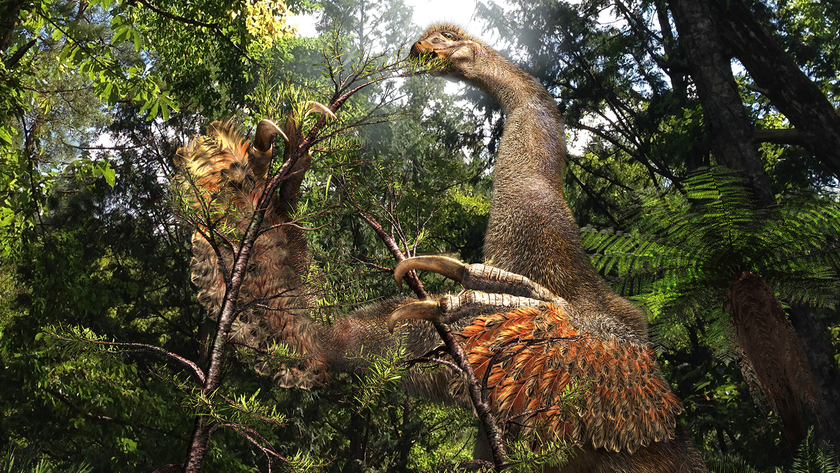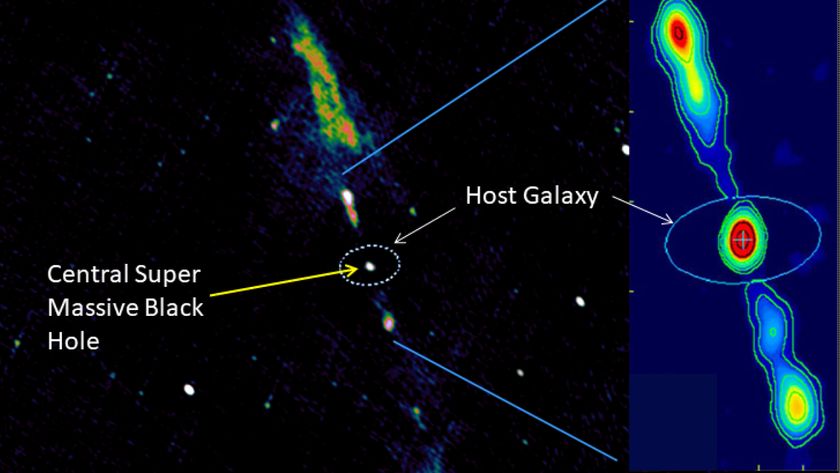Brewing Controversy: Experts Say Four Loko Worse than Mixed Drinks
The Food and Drug Administration warned four companies today (Nov. 17) that the caffeine added to their malt alcoholic beverages is an "unsafe food additive" and said that further action, including seizure of their products, is possible under federal law.
The warning follows a year-long scientific review, the agency said, which found no support for the claim that the addition of caffeine to these alcoholic beverages is generally recognized as safe.
"They failed to show the addition is safe, so caffeine is an illegal food additive to these products," said Dr. Joshua Sharfstein, principal deputy commissioner of the FDA, at today's news conference.
One of the warned companies Phusion Projects, which produces the controversial malt beverage Four Loko announced late Tuesday that it will be removing caffeine, guarana and taurine from its drinks nationwide.
The other companies receiving the warnings are Charge Beverages Corp., which produces Core High Gravity HG; New Century Brewing Co., LLC, which produces Moonshot; and United Brands Company Inc., which produces Joose. The companies have 15 days to provide specific steps to remedy the violation.
These companies have been singled out by the FDA because they advertise addition of caffeine to their products, they sell the products in single-serving containers that can promote excessive consumption and binge drinking, and because the FDA was able to access the products and test them, Sharfstein said.
The FDA review is ongoing and may result in warnings issued to other companies found to be in violation of the law. The FDA will work with the companies to decide how products should be pulled from shelves and whether they'll be replaced with law-compliant versions.
Sign up for the Live Science daily newsletter now
Get the world’s most fascinating discoveries delivered straight to your inbox.
The drinks had already prompted a spate of state and university bans around the country. Four Loko was banned in Utah, Michigan and Oklahoma, and next month distributors in New York would have been prohibited from selling it.
The state of Washington banned all manufactured alcoholic energy drinks after nine underage students at Central Washington University who drank Four Loko were hospitalized with alcohol poisoning earlier this year.
Brewing controversy
Phusion Projects says its drinks are not harmful, but health experts disagree.
"We have repeatedly contended and still believe, as do many people throughout the country that the combination of alcohol and caffeine is safe," the company said on its website Tuesday night. "If it were unsafe, popular drinks like rum and colas or Irish coffees that have been consumed safely and responsibly for years would face the same scrutiny that our products have recently faced."
But what makes drinks such as Four Loko so much worse than the mixed drinks that preceded them into bars is the combined effects of their higher levels of alcohol and caffeine on the brain, said Dr. Mary Claire O'Brien, an associate professor of emergency medicine at Wake Forest University Baptist Medical Center in North Carolina.
"Caffeine in the beverage is at high-enough levels that it interferes with [people's] ability to tell that they're drunk, so they keep drinking," O'Brien told MyHealthNewsDaily.
Drinks with less caffeine make it easier for people to tell when they've had too much alcohol, she said.
The Food and Drug Administration has been investigating the legality of manufacturing alcoholic energy drinks for the past year and had required companies selling the products to provide evidence that caffeine added to alcohol is safe.
Elements of the drink
Irish coffee a hot cocktail of coffee, Irish whiskey, sugar and cream is too warm to chug, O'Brien said, so one drink isn't likely to get you immediately drunk. And a Red Bull and vodka, rum and Coke or any similar mixed drink ordered at a bar isn't likely to have as much caffeine as a 23.5-ounce can of caffeinated malt liquor, she said.
Four Loko contains 156 milligrams of caffeine, compared with 76 in a can of Red Bull.
Phusion Projects says the drink has the same amount of alcohol as wine and some craft beers, and as much caffeine as a tall Starbucks coffee. (According to Starbucks, a tall coffee has 260 milligrams of caffeine.)
But health experts have likened drinking Four Loko to guzzling five or six light beers and up to two cups of coffee.
The effects many people claim to experience from the drinks make sense scientifically, O'Brien said. Most people mistakenly think alcohol and caffeine work in opposition to each other, because caffeine is a stimulant while alcohol is a depressant and can make you sleepy.
But alcohol creates sleepiness by promoting the release of the hormone adenosine in the brain, and caffeine binds to receptors for adenosine in the brain. So when both are present in the bloodstream, caffeine binds to these receptors and blocks adenosine, creating a state of wide-awake drunkenness, she said.
"It's not the same as having coffee after a meal and then a couple glasses of wine," O'Brien said. Alcohol and caffeine are "competing for similar sets of neurotransmitter receptors, so caffeine temporarily blocks the effect of alcohol."
And caffeine and alcohol are broken down by the body at different rates, she said. The rate at which the body breaks down caffeine depends on the amount in the blood the more there is, the faster it metabolizes but alcohol is metabolized at a steady rate regardless of whether you've had one beer or 15.
"You keep drinking because you think you're awake," and you are really are, she said. "But when the caffeine has worn off and your alcohol level is super-high, now you're really in trouble. And I think that's where the blackouts come from."
'You're an energized drunk'
While health experts have warned of the dangerous consequences , some argue it's all a matter of drinking responsibly.
Chris Hack, owner of the Spinning Room bar in Tannersville, N.Y., which sells Red Bull and Monster mixed drinks in addition to Four Loko, said he doesn't see a problem with people 21 and older partaking, as long as they are aware of their alcohol intake.
Bartenders are responsible for the people drinking in a bar, he said, "so whether it's alcohol, mixed drinks, beer, energy drinks, whatever, we have to be vigilant in making sure they don't take it too far here, because we're responsible for when they leave."
Some consumers say the drinks have their purpose.
The reason for the existence of cheap, convenience-store alcoholic energy drinks is to get people drunk quickly and inexpensively, said Paul Anderson, who directs a marketing and higher education research firm in Lincoln, Neb. Cans of Four Loko and Joose cost $2 to $3 a pop.
Anderson, 23, said he has tried his share of alcoholic energy drinks but generally drinks them only before he goes out dancing or if he knows he'll be at a party for a while.
"You're hyper, you're bouncing off the walls," said Anderson. "You're an energized drunk. It creates a sense of restlessness."
Anderson said he has never had an adverse reaction to an alcoholic energy drink, nor has he seen anyone get into a dangerous situation because of one. But he said that even his friends who are very good at holding their alcohol become stumbling drunks after a few.
"They're blacked out, but they're still running around and babbling, shouting, and I think that's where they're more likely to make poor decisions," he said. Then "people are more likely to let them make poor decisions , because they're not the drooling drunk that they would be without the caffeine."

